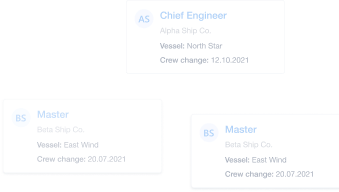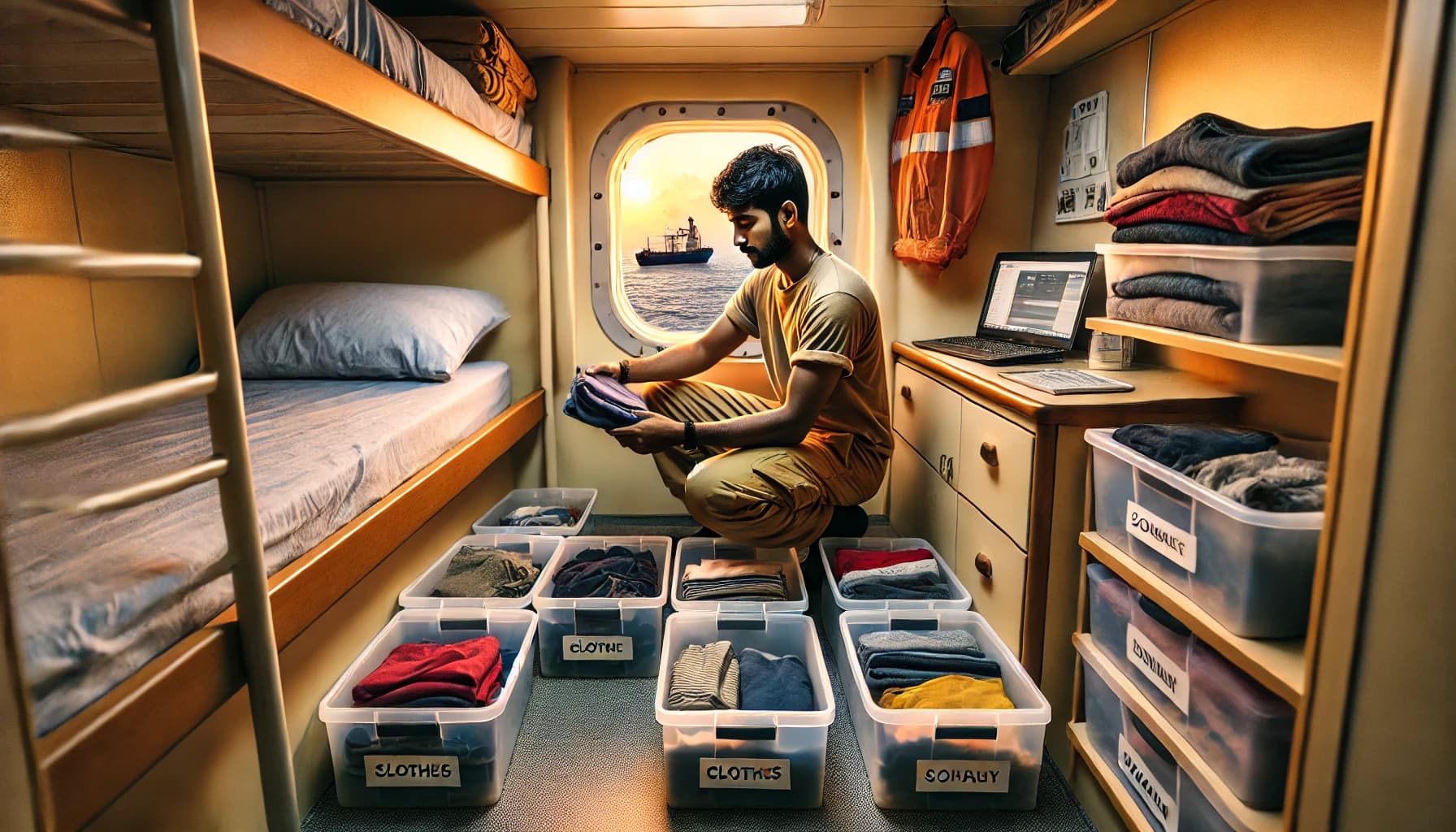If you’re a seafarer whose contracts and jobs at sea are impacted by suffering from sea sickness, chances are you try and keep it quiet from your fellow crew members.
But really there’s no shame in admitting that you sometimes struggle with this unfortunate aspect of life at sea.
After all you’re in good company: it’s now known that Lord Nelson was a sea sickness sufferer, as was Charles Darwin who spent as much time as possible on land during his five year voyage on the Beagle!
8 tips for dealing with sea sickness in jobs at sea
From the biggest container ship to the smallest dinghy, when motion sickness hits, it can be debilitating. We all know that sea sickness won’t kill us, but the nauseating feelings that it produces are very real.
In seafarer jobs it can be a real occupational hazard and you need to know how to combat it in order to effectively perform your duties.
They say that prevention is better than cure, so we’re going to look at some ways to try and stop sea sickness from happening in the first place, and see what steps you can take to minimize the symptoms if you are afflicted.
After all, life at sea goes on and anyone working in jobs at sea will need to know how to handle this curse!

What causes sea sickness?
In its simplest terms, any kind of motion sickness - whether you’re travelling by truck, train or ship - is caused by repeated movements.
You could be in your car driving home on a bumpy road after a spell at sea, or you could be onboard the biggest container ship on the ocean and still be affected by the roll of the waves.
What happens when you experience these motions is that the eye sees one thing while the inner ear (which controls your balance) sends different signals to your brain. It’s the confusion created by this conflict that makes you feel ill.
What are the symptoms of sea sickness?
Knowing whether you’re feeling sick due to stormy weather and rolling waves, or if there is something else wrong with you, is crucial when you’re onboard a vessel.
Being in an enclosed space with other crew members if you have a bug, flu or other contagious illness can mean disaster for crewing operations.
Unfortunately some of the early symptoms of sea sickness are very similar to those of a stomach bug so you’ll need to try and figure out as quickly as possible what’s wrong with you.
Common sea sickness symptoms include:
- Cold sweats
- Feeling dizzy or feeling light headed
- An increase in the amount of saliva in your mouth
- Pale and clammy skin
- And of course....the dreaded vomiting
And if you’re really unlucky you might also find that you develop:
- A headache
- Drowsiness or extreme tiredness
- Quick and shallow breathing
How to prevent sea sickness in jobs at sea
There are a couple of practical things you can do before leaving port.
It probably goes without saying that avoiding alcohol is one of them.

If you’re planning a big night out before the start of one of your seafarer jobs, try and do so a few days before you leave to give your body time to get rid of the toxins. Make sure you’re well hydrated (with water!) too.
You should also resist the temptation to overeat. As nice as it might be to stuff yourself with your favorite foods before you embark, eating a light meal will be much better for you.
Tips and tricks for dealing with sea sickness
If your sea sickness isn’t completely debilitating, the good news is there are a few tricks you can try to improve the symptoms. Most of these involve distracting yourself from how you’re feeling: a classic move!
- Look at something stable that’s not moving. For example, if you’re on deck, fix your eyes on the horizon and try to avoid looking at the waves. Obviously this plan is flawed if you’re in the middle of a gale and experiencing giant waves...
- On a similar note, if your vessel has internet access, while that’s normally a big bonus when life at sea is normal, stay well away from your laptop, eReader, Kindle, phone, game console, and even books while you’re feeling sick. Your ears, eyes and brain have enough to do without being confused by a further assault on the senses.
- If it’s possible to do so, plug your headphones in and distract yourself by listening to music. Whether you go for something soothing or heavy rock is entirely up to you!
- Avoid any enclosed spaces. This might also not be practical, depending on your duties but if it’s an option, get yourself to a part of the ship where you can blow the nausea away with some fresh sea air - either on deck or through an open door or window.
- Make your brain forget that it’s instructing you to vomit by distracting it with your mental powers! Focus on your breathing, count down from 100 backwards or see if you can think of a nautical term for every letter of the alphabet.
- Stay still. We know that’s easier said than done when your vessel is battling her way through a storm but if you can, get yourself as near to the center of the ship as possible. Your vessel moves around her center of gravity - the center of the ship - so this is where you’ll experience less movement.
- Get rid of an unpleasant taste in your mouth by sucking boiled candy or drinking a cold can of soda. These simple acts will also help distract you - even if it is only momentarily.
- Drink a cup of ginger tea or eat some ginger biscuits/cookies. Ginger isn’t exactly scientifically proven to get rid of sea sickness but for centuries it has been used as a cure to calm stomachs and help dispel nausea - so what have you got to lose?!
Things you can buy to help combat sea sickness
While we’re going to steer clear of naming any types of medicine, if you know you suffer from sea sickness, or if you’re about to embark on your first voyage and are worried about how being an enclosed space and choppy weather will affect you, speak to your doctor or a pharmacist.

Read more: 7 Tips for Getting Over Jet Lag in Seafarer Jobs
Tablets/pills, patches and acupressure bands should all be readily available from a pharmacy. Just bear in mind that acupressure bands don’t work for everyone, and be extremely careful when purchasing pills or anti-sea sickness medicine off the shelf or over the counter: the last thing you want when undertaking seafarer jobs and duties is something that makes you drowsy.
That’s a real no-no for officers of the watch and anyone operating heavy machinery, no matter whether you’re an excavator driver or navigating your fleet’s biggest container ship.
As a seafarer your health and wellbeing is of paramount importance.
You need to be physically fit and able to perform your duties and sea sickness can pose a real threat to that. Staying on top of ways to beat it - and to be able to offer advice to your fellow crew members who may be suffering - will give you the best chance of working to the best of your abilities and enjoying your life at sea a whole lot more!
Meanwhile if you’re actively looking for jobs at sea, have you downloaded Martide’s mobile app for seafarers yet?

It gives you anytime, anywhere access to our vacant seafarer jobs and makes it quick and easy to apply for contracts and speak to employers. Get it today from Google Play for Android smartphones or from the Apple Store for iPhone users.

Eve Church
Eve is Martide's content writer, publishing regular posts on everything from our maritime recruitment and crew planning software to life at sea. Eve has been writing professionally for more than two decades, crafting everything from SEO-focused blog posts and website landing pages to magazine articles and corporate whitepapers.
UK




